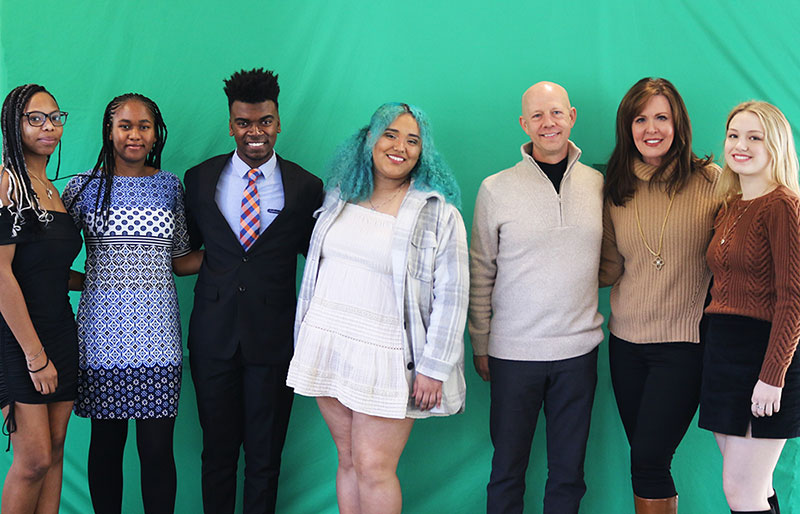
UNT alumna Kelli Karlow (’89) and her husband, Marvin, made a commitment early in their marriage that if they ever came into a position of financial abundance, they would give to causes they are passionate about. Now, motivated by their strong connection to the foster and adoption communities, the couple has established the Karlow-Robinson Family Endowment with a $150,000 gift, supporting UNT’s Persevere UNTil Success Happens (PUSH) program.
The PUSH program, now celebrating its tenth year at the university, provides a structured, campus-wide network of assistance to help foster care alumni achieve academic, financial and career success. The program focuses on the social wellbeing of each student, enabling them to arrive and thrive at UNT.
For the Karlows, supporting the PUSH program underscores their deep belief in the power and importance of higher education and their desire to give both generously and directly.
“Students in the PUSH program have overcome so many obstacles to be where they are today,” says Kelli. “It’s a privilege for us to get to do something to serve them and help them change their legacies.”
The couple, who adopted their daughter, Karys, at birth, felt inspired when they first heard about PUSH on a local news program a few years ago. They decided in that moment to someday give something significant to the program. Their new endowment was created in honor of Kelli’s mother, Pamela Robinson, as part of the family’s mission to be generous with their time, love and resources.
“Being able to honor Kelli’s mother by giving in support of such an important program means so much to us,” says Marvin. “We want to have an impact on the students who are going to change the world.”
For Brenda Sweeten, a clinical associate professor at UNT who formed the PUSH program in 2012, the gift from the Karlows is an example of when the community and university villages come together to support our students. Her goal is to continue to offer a robust program — one that shows students they’re not alone at UNT and helps them learn to advocate for themselves.
“When we first started doing this on campus, there were times when I felt I didn’t have anything to give to students who needed help. That was really hard for me,” says Sweeten. “Our numbers have grown dramatically over the last ten years, and we’re so grateful to Kelli and Marvin who are helping us build a sustainable program.”